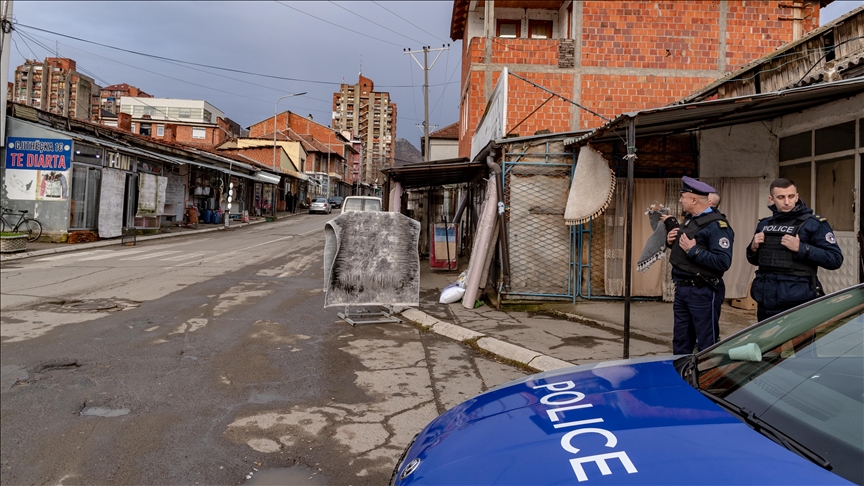OPINION - The suspension of Serbia-Kosovo normalization talks
Türkiye recognizes new geopolitical vacuum created in the Balkans and the opportunity this provides to do more to preserve peace and stability in a region it shares deep historical, ethnic, religious and cultural ties with

The author is an associate professor of political science at Ibn Haldun University in Istanbul.
ISTANBUL
In the latest rhetorical escalation of tensions between Serbia and Kosovo, on July 21, Belgrade announced it would suspend the EU-brokered normalization process with Pristina following the arrest and pre-trial detention of Igor Popovic, a Serbian negotiator and deputy director of Serbia’s Office for Kosovo and Metohija. Popovic was accused by high-level Kosovo officials, including Prime Minister Albin Kurti and Interior Minister Xhelal Svecla, of "inciting hatred and interethnic divisions" by calling the Kosovo Liberation Army (UCK) a "terrorist organization" at a rally commemorating wartime Serb and Roma victims in Rahovec. In a rhetorical tit-for-tat, both Serbian President Aleksandar Vucic and Foreign Minister Marko Duric branded the pre-trial detention of Popovic "a continuation of a sustained cycle of repression" and said that "Serbia will respond in a strong and firm way."
Assessing the latest escalation
This latest escalation can be interpreted in two different ways. First, one can make the case that it is the time-tested strategy of both the Belgrade and Pristina administrations to provoke mini crises in bilateral relations in order to divert attention from domestic troubles they are facing. Indeed, both countries are facing significant internal instability. Vucic is still grappling with months of student-led demonstrations that have now critically upped their demands to include early elections and an end to his rule. On the other hand, Kosovo has failed 52 times to constitute the country's new parliament since the Feb. 9 parliamentary elections, making the prospect of snap elections increasingly likely. In this respect, the latest crisis over the pre-trial detention of Popovic is no different from the clashes in the four Serbian-dominated municipalities in northern Kosovo in May 2023, the ban on the use of the Serbian dinar in January 2024, or the shutting down of Serbia-run parallel offices in 10 municipalities south of the Ibar River in January 2025.
The second way to make sense of the latest escalation in Serbia-Kosovo relations is that it reflects an attempt by Balkan political elites in general to adapt themselves to the shifting geopolitical reality in the region in the short-to-medium term. More specifically, the US retreat from its role as security provider under the Trump administration has led Europe to try to fend off security challenges on its own. All this has provided more leeway for selfish and corrupt Balkan elites to play the nationalist card for political ends. Seen from this angle, the latest Belgrade-Pristina tensions are no different from the racist insults against Albanians heard during a basketball match in Kumanovo, North Macedonia a few days ago. Indeed, both ethnic majority and minority parties have already cashed in on this incident and will undoubtedly use it for the upcoming local elections in October.
Türkiye’s Balkan Peace Platform
At the same time, the new geopolitical reality marked by the US retreat also provides new opportunities for regional powers to assert themselves and project influence in the Balkans. The Balkan Peace Platform that Türkiye most recently initiated is fundamentally a fresh framework for regional cooperation and stability that seeks to complement the already existing general framework provided by the EU and West. In the platform’s very first meeting in Istanbul on July 26, chaired by Turkish Foreign Minister Hakan Fidan, Türkiye acknowledged the importance of Euro-Atlantic institutions for achieving and preserving peace and stability in the region, but also emphasized the need to give more weight to regional actors themselves, including Türkiye, to provide for their region’s security.
As aptly put by Fidan: "We also reached a consensus on generating regional solutions to regional problems. Rather than waiting for a hegemon, contributions from outside should be welcomed; however, if we as the countries of the region possess the capacity to resolve our own problems, it is both our duty and responsibility to demonstrate that capacity."
In short, Türkiye recognizes the new geopolitical vacuum created in the Balkans and the opportunity this provides to do more for preserving peace and stability in a region with which it shares deep historical, ethnic, religious and cultural ties.
*Opinions expressed in this article are the author's own and do not necessarily reflect Anadolu's editorial policy.








